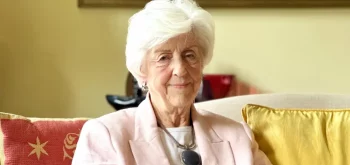Do new rules, which allow both prosecutors and defendants and their lawyers to meet and discuss what enquiries the police should make, mark the start of a cooperative search for truth and justice, or are they a means of returning to the old days when the police made deals with suspects who were kept in order by their own lawyers? Andrew Green reports
The idea of pre-charge engagement seems to have arisen as a partial solution to the serious and continuing problems besetting the process of disclosure in criminal cases. The disclosure of evidential material (documents, digital records, video recordings etc.) to defendants by prosecutors of any material which might support the defence case or undermine the prosecution case, and the police enquiries which gather material relating to crimes, are governed by the Criminal Proceedings and Investigations Act (CPIA) 1996. The CPIA sets out the general rules, while the detailed application of the rules is governed by a Code of Practice (CoP), issued every five years. This Code of Practice is a statutory instrument, which means that it is drafted by the Ministry of Justice and then made available to Parliament so that MPs and members of the House of Lords can make proposals for changes. In September 2020 a new CoP was delivered to Parliament. It was due to come into force on 31 December 2020 (although it seems to be running late).
The new CoP is further supplemented by a new version of the Attorney General’s Guidelines on Disclosure provided for the benefit of all concerned – investigators, prosecutors and defence practitioners (AG Guidelines). Annex B of the guidelines 2020 version includes a completely new subject: ‘pre-charge engagement’.
Pre-charge engagement is the meeting of police investigators, Crown Prosecution Service (CPS) prosecutors, defence lawyers and defendants (in likely order of importance) during the period between formal police interviews of suspects and the decision to charge which is made by the CPS. At this stage of the criminal process, the disclosure provisions of the CPIA do not apply (they kick in when a suspect is charged with a crime).
But the provisions of the CPIA which govern enquiries do apply, which means that the police are required to follow ‘all reasonable lines of enquiry’ which point to, and away from suspects’ involvement in the crime under investigation. So pre-charge engagement provides an opportunity for suspects to ask the police to follow lines of inquiry which could help the defence case.
The most obvious example of such co-operation between the two sides in our adversarial system (normally sworn enemies) concerns the searching of digital material, typically in cases of rape and other serious sexual assaults. Such material might radically affect issues such as, whether complainants had consented to the act which they now allege to be a criminal act, or other issues such as the identity of the assailant, or an alibi defence.
Any smartphone may contain vast amounts of data, and material relevant to the case may lie embedded anywhere within its memory. The data may be downloaded on to a DVD and copies made for both sides to peruse, but reading all of it would require human resources which are simply not available in any part of the criminal justice system. Fortunately powerful software exists which can search the data. The co-operation, now becoming standard between prosecution and defence, consists of agreeing the terms for which the software program should search.
No one could fail to welcome the outbreak of common sense which such voluntary cooperation heralds. Surely the provision for pre-charge engagement could be extended to other areas of enquiry which are beyond the capabilities of defendants and their lawyers, but which the police could carry out using their far greater powers, experience and resources? Every participant in the conduct of a criminal case has a common duty to further the ‘overriding objective’ stated by the Criminal Procedure Rules, that is, to deal with the case ‘justly’ by ‘acquitting the innocent and convicting the guilty’ and ‘recognising the rights of a defendant, particularly those under Article 6 of the European Convention on Human Rights.’
Phew. But hasn’t informal pre-charge engagement been happening in some form ever since the police started investigating crime and prosecuting cases? Somehow, pre-charge negotiations always took place. They included the exchange of information, involving off-the-record disclosure of the strong points of the prosecution case in exchange for intelligence from the suspect, or the reduction or dropping of charges in exchange for suspects agreeing to give evidence for the prosecution?
The case of Pinnock and others (Pinnock and others [2006] EWCA Crim 3119) springs to mind (it often does) in which two suspects who torched a car used in a drive by shooting to murder someone, suspects who were at least guilty of a very serious attempt to pervert the course of justice, let off with warnings while others involved were given life sentences. Some suspects may have benefitted from such pre-charge engagement, but others did not. Nine people were convicted of joint enterprise murder in Pinnock, at least five of whom continue to maintain their innocence and are entering their 19th year in prison.
Do the new rules include this type of engagement? They do. ‘Suspects who maintain their innocence will be aided by early identification of lines of inquiry which may lead to evidence or material that points away from the suspect or points towards another suspect … Pre-charge engagement can help inform a prosecutor’s charging decision. It might avoid a case being charged,’ the Attorney General advises.
Consider the difficulties over plea bargaining, in which the financial and administrative benefits of guilty pleas extend to every participant in criminal cases (apart from innocent suspects and defendants). The rules or practices which govern plea bargaining are obscure and inconsistent (see here), but the option of pleading guilty to a lesser offence than that for which the suspect was arrested is an essential part of plea bargaining. What better opportunity could exist within the structure of the criminal process than a meeting between police, prosecutors defence lawyers, all of whom benefit from an early guilty plea and the suspect, who may need to be persuaded of the benefit, especially if they are innocent? ‘The cost of the matter to the criminal justice system may be reduced, including potentially avoiding or mitigating the cost of criminal proceedings,’ the Attorney General points out.
Decades ago, pre-charge engagements were common and, for defendants, dangerous. Teenagers, such as Ahmet Salih, 14, Colin Lattimore, 15, and Ronald Leighton, 18, could be bullied into confessing to murder and arson of which they were innocent. Or suspects could suffer beatings, threats to kill (the Birmingham Six) and torture (Derek Treadaway and Keith Twitchell, while held in custody by the West Midlands Serious Crime Squad, disbanded abruptly in 1989). While such practices may not be planned by modern advocates of pre-charge engagement, the problem was not that bullying and brutality were approved – they were always forbidden, of course – but that a lack of structure and surveillance made it possible for corrupt officers to do as they wished.
Two developments brought about change. The first was the 1984 Police and Criminal Evidence Act (PACE) and its associated CoP (a statutory instrument still in force and regularly updated). PACE and its CoP required everything that happened to a suspect in custody to be recorded on a custody record, available to everyone concerned including defence lawyers. Informal practices, whether brutal assaults or bargaining over evidence and pleas, were not eradicated, but made more difficult to carry out. Plea bargaining became the responsibility of defence lawyers, theoretically a go-between for the court and the defendant, but in practice required to persuade the latter to accept what was offered by the former.
The second development was technical: the introduction of tape recorded interviews and CCTV surveillance in police custody suites.
This brief history of pre-charge engagement is not intended to be an argument that malpractice, bullying and violence has been eradicated or even reduced in police investigative practice, but that increased surveillance has at least changed what happens to suspects in police custody, and the changes have been in the direction of increased recording and formalisation. At first sight, the new pre-charge engagement rules are an extension of the change.
Meetings are voluntary. Meetings may be called by either side. They can be prearranged, or just happen informally when police investigator, suspect and defence lawyer happen to be together, such as following the termination of a formal interview.
The prosecution can be represented by a CPS staff member or a police officer. Suspects cannot be penalised for not agreeing to meet, nor can any refusal by them to answer questions be held against them in a trial, as can happen with an investigative interview. If they have already given a ‘no comment’ interview, that does not prevent a pre-charge engagement meeting from taking place. The record of the meeting cannot be disclosed to other defendants, in the same case or in any other case. (But if the defence brings its own material to a meeting, that material could be disclosed to other defendants by the CPS.)
A full written, signed record of the pre-charge engagement discussions should be made. But pre-charge engagements are not recorded in any other ways. The record should be made by defence legal representatives, so the defence can determine the content of the record. That means that if negotiations take place in the meeting, they can be excluded from the record.
Plea bargaining can remain hidden. If a suspect passes information to the police about others who may become suspects, even replace the current suspect with another, that information may be added to the police’s secret store of intelligence, or, if later in the process prosecuting lawyers think such information might help the case of another defendant, it can be protected by being given public interest immunity (PII) by a helpful judge and so remain undisclosed.
So is that what a pre-charge engagement is for – secretive plea bargaining, hidden opportunities to pressurise unhelpful suspects into pleading guilty, or to offer opportunities for suspects to inform on others to avoid conviction (and find themselves becoming long term police informants)? – as much as it is for reaching agreements on lines of inquiry (which the police may ignore if they want) and terms to be fed into search engines. If so, perhaps pre-charge engagements are better avoided. There are other ways of telling the police about lines of inquiry, and consultation over search terms has already been developed and is in use.
We should ask what this proposal legitimates. After a formal, fully recorded police interview, instead of returning the suspect to their cell, the same group of people continue to talk in a meeting which, until now, was forbidden and which could not be accounted for on a custody record, but which can now be a pre-charge engagement. Until then, the suspect may have said nothing but ‘no comment’ on the advice of the lawyer, but now they can say anything without fear that it could be used against them in court. If the suspect really is a criminal, they can grass up their competition such as, for instance, other drug dealers, knowing they will be protected – that would be a really useful new line of inquiry for themselves and for the police. Or, if the suspect simply persists in being difficult by insisting on having their day in court, the legal representative can enjoy the support of the two police officers in persuading them to plead guilty and save them all time and money.
So enthusiastic is the Ministry of Justice that pre-charge engagements should be instituted that, despite the scandalous underfunding of the criminal justice system, it is prepared to pay defence lawyers an extra fee in addition to the usual fixed fee for police station attendance. No wonder lawyers appear to have been won over to this bright idea.







